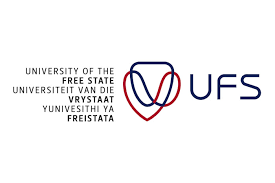University of the Free State: The ABCs of (trans)gender awareness and creating inclusive housing
Creating residences and other spaces that adapt to change without it being forced is a process that requires time, patience, and nurturing. Through recent engagements with Jessica Lynne, a transgender activist from the Kinsey Institute in the United States, the Centre for Gender and Africa Studies (CGAS) and the Housing and Residence Affairs (HRA) division at the University of the Free State (UFS) are committing to creating dialogue and engagements that will foster gender-, transgender- and LGBTQI-positive attitudes for residences on and off the UFS campuses.
Most of the advocacy and educating work envisaged by the CGAS and HRA did not materialise due to the COVID-19 pandemic. “There are issues coming to the forefront amongst the student community in terms of gender identity and gender fluidity on all three UFS campuses. It is visible that these issues exist, but they are not being discussed,” said Dr Nadine Lake of the CGAS. She added that the Centre would like the UFS to continue addressing issues like acceptance, inclusion, and diversity, but to also focus on gender identity and not just on race.
Inclusive living spaces: The seed has been planted
“We reached out to Housing and Residence Affairs (HRA) around creating more education and advocacy for students and students within HRA around transgender identity specifically, but then also gender,” Lake said. According to Vency Mupupa, Senior Officer: Accommodation Services at HRA, the seed for a broad-based gender awareness project within on-campus residences started in 2019, when HRA was tasked with conducting research into inclusive housing.
“The focus is not only on transgender people but the LGBTQI community at large. We are starting small, but eventually it will affect the larger student population,” Mupupa said.
She emphasised that the focus is not only on students in residences but also on staff within HRA and the residences. “We have 25 000 students, and on-campus residences can only accommodate around 6 000 students, so it is a drop in the ocean, but if we can educate everyone else the space will move away from being unaccepting and become more inclusive.”
Transgender awareness breaks down walls
Referencing her own experiences, Lynne, who is a transgender woman, said that advocating for gender awareness is all about creating safe spaces for people to be their authentic self. “It is a very closeted feeling,” she said. “When I transitioned, I experienced a lot of bad things, and I wanted to use my experience to help educate others so that are not trapped the same way I was. There is a very small percentage of people worldwide who identify as transgender… It is not like there are no transgendered people here, it is just that they are scared of coming out.”
Universities are the perfect space
Lynne decided her awareness campaigns should focus on university students because the students she reaches are the next generation of doctors, lawyers, politicians, and judges. “It is all about how we can educate the next generation.”
Most university or college students are going to progress in their careers and will be able to use their influence to educate the next generation. “But, most importantly, most of these students are going to become parents – and sooner or later one of them might become a parent to a bisexual, transgender, or gay child, and through my presentations it would have hopefully opened a lot for them to comprehend,” Lynne said.
Lynne is internationally renowned for her transgender awareness work and advocacy, and her longstanding relationship with CGAS widened the scope to intensify this project. “Jessica’s work is very important, firstly because of her affiliation with the Kinsey Institute, but most importantly her work in transgender identity,” Dr Lake said. Lynne has presented classes, seminars and talks at some of the leading universities around the globe and in South Africa has delivered talks at the UFS and Rhodes University.

